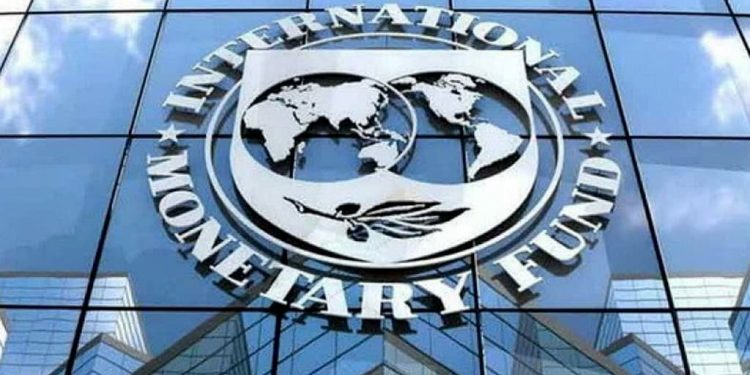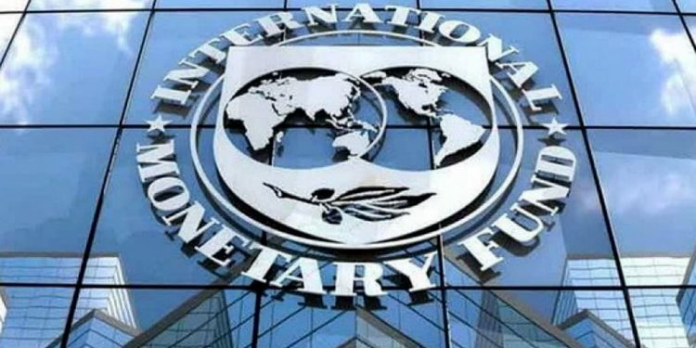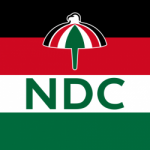The International Monetary Fund (IMF) has expressed concerns over the passage of the Anti-LGBTQ+ Bill by the Parliament in Ghana.
Recall that the Parliament approved the bill that criminalizes LGBTQ+ activities, as well as their promotion, advocacy, and funding on February 28,2024.
The bill includes a jail term ranging from 6 months to 3 years, for those found guilty, while those promoting and sponsoring the act could face a jail term between 3 to 5 years.

The Bill’s passage attracted criticism from various stakeholders,which includes the United States Ambassador to Ghana, Virginia Evelyn Palmer.
A statement, released by the IMF emphasized that its internal policies forbid discrimination and that it is closely monitoring the situation in Ghana.
Ghana has been seeking a bailout from the IMF following an economic downturn.
However, the first and second tranches have been released into Ghana’s account. It is uncertain if Ghana would secure the third tranche following the passage of the Anti-gay bill.
In a statement released by the IMF and shared with Bloomberg, it was stated, “Diversity and inclusion are values that the IMF embraces. Our internal policies prohibit discrimination based on personal characteristics, including but not limited to gender, gender expression, or sexual orientation.
Like institutions, diverse and inclusive economies flourish.” President Nana Addo Dankwa Akufo-Addo is yet to assent to the Bill.
On January 23, the Bank of Ghana (BOG) confirmed the receipt of US$600 million as the second tranche of Ghana’s bailout package with the IMF.
The funds, intended for budget support and stabilization of the local currency, were officially credited to the Central Bank’s account.
So far, Ghana has received a total of US$ 1.2 billion out of the $3 billion approved under the three-year extended credit facility in May of the previous year.
According to the IMF, Ghana has shown good performance under the program, with reforms yielding positive results and signs of economic stabilization becoming evident.
























































![[FREE FREE MONEY] Predict and Win a Guaranteed GH¢200 From Us EVERY WEEK](https://wordpress.ghanatalksradio.com/wp-content/uploads/2022/02/Predict-and-Win-Final-09-03-2021-218x150.jpg)
![[Predict & Win – 8th/Oct.] WIN A Guaranteed ¢200 From Us This Week](https://wordpress.ghanatalksradio.com/wp-content/uploads/2021/10/maxresdefault-16-218x150.jpg)
![[Predict & Win – 2nd] WIN A Guaranteed ¢200 From Us This Week](https://wordpress.ghanatalksradio.com/wp-content/uploads/2021/09/maxresdefault-50-218x150.jpg)
![[Predict & Win – 25th] WIN A Guaranteed ¢200 From Us This Week](https://wordpress.ghanatalksradio.com/wp-content/uploads/2021/09/maxresdefault-36-218x150.jpg)
![[Predict & Win – 18th] WIN A Guaranteed ¢200 From Us This Week](https://wordpress.ghanatalksradio.com/wp-content/uploads/2021/09/maxresdefault-23-218x150.jpg)










![[National cathedral] See full list of churches that have contributed since 2018](https://wordpress.ghanatalksradio.com/wp-content/uploads/2020/09/Ghana-National-Cathedral-GhanaTalksRadio-100x70.jpg)
![[Photos] Brazilian Trump-wannabe, Bolsonaro defeated by Lula in ‘free, fair’ election](https://wordpress.ghanatalksradio.com/wp-content/uploads/2022/10/GPPXNDHZ3BML7L2V6R3PZN6GDE-100x70.jpg)


